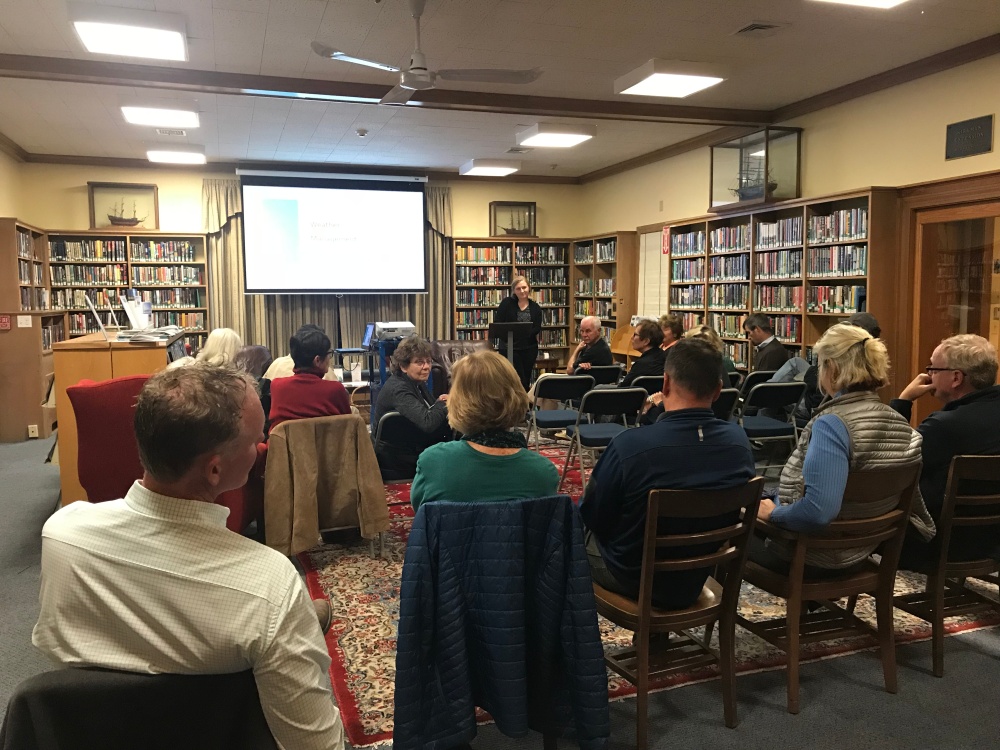On a cozy October evening at the Cotuit Library on Cape Cod, I presented my research and findings from my 2018 Summer Graduate Fellowship at the Frederick S. Pardee Center for the Study of the Longer-Range Future. Oyster farmers, homeowners, tourists, and community members attended my talk, “Cape Cod Oysters and Climate Change.”
I saw this presentation as a continuation of my research, rather than a culmination, and a step to increasing my practice of public scholarship. My summer fellowship project was an ethnographic study of how oyster farmers in the town of Barnstable (in which Cotuit is a village) understand and respond to threats posed by climate change. The existence of climate change is debated in town government and in oyster farms, but everyone agrees that the seas are changing and we need to act. In my talk at the Cotuit Library, I shared what I had heard from oyster farmers and government employees, and invited the audience to share feedback, suggestions, and their personal experience.
 Those who attended the talk were eager to take me up on this invitation. Tourists in from New Jersey shared what they knew about oyster farming in their home state, and homeowners from across the Cape who attended described how oysters matter in their neighborhoods. Chris Gargiulo, owner of Cotuit Oyster Company (founded in 1847), shared how he experiences climate change in his business, and some of the adaptations he has enacted to protect his oysters. There were also several recreational oyster harvesters in the group, and even more enthusiastic oyster eaters.
Those who attended the talk were eager to take me up on this invitation. Tourists in from New Jersey shared what they knew about oyster farming in their home state, and homeowners from across the Cape who attended described how oysters matter in their neighborhoods. Chris Gargiulo, owner of Cotuit Oyster Company (founded in 1847), shared how he experiences climate change in his business, and some of the adaptations he has enacted to protect his oysters. There were also several recreational oyster harvesters in the group, and even more enthusiastic oyster eaters.
It was a lively discussion, and all 17 attendees spoke up or asked questions. My favorite part of the discussion was when we crowd-sourced reasons we value oyster farms, and why we think it is important they remain resilient. “I want to be able to keep eating oysters!” cheered one woman gleefully. “They clean the water,” added another. “Oyster farming offers our community good jobs,” put forth an oyster farmer. “And mostly year-round jobs, too,” I responded, which is especially important in Cape Cod’s seasonal economy. Then one attendee suggested something I hadn’t considered before: “I think oysters are also important for what they can tell us about the rest of the ecosystem. If they aren’t doing well, that tells us a lot.”
It was a joy to share the fruits of my summer labor, and to begin to pay back the community of Barnstable for supporting my research. Thank you to all who attended, to the Cotuit Library for hosting me, and to the Pardee Center for funding my research.
